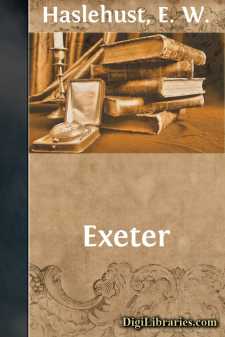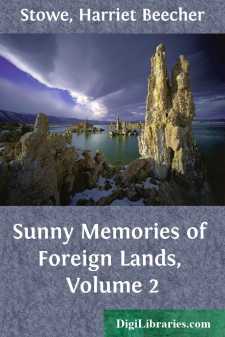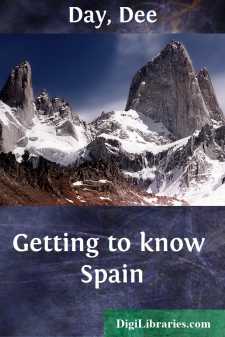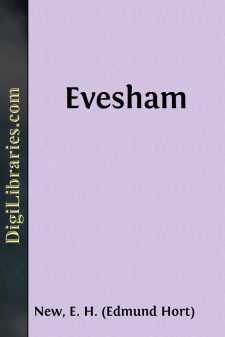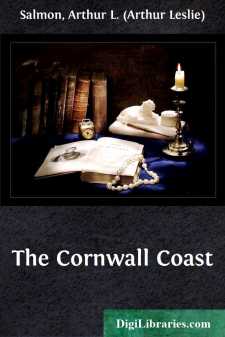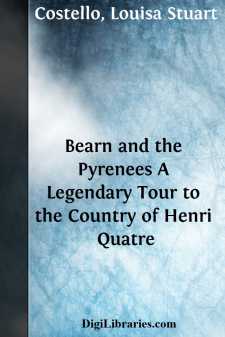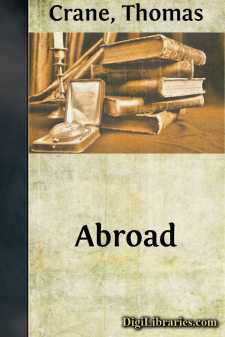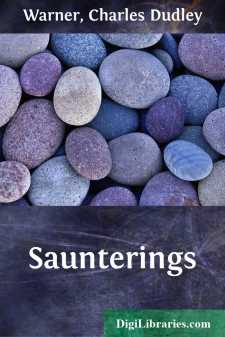Travel
- Africa 29
- Alaska 3
- Asia 46
- Australia & Oceania 26
- Canada 31
- Caribbean & West Indies 5
- Central America 1
- Europe
- General 39
- Maps & Road Atlases 1
- Mexico 10
- Middle East 18
- Polar Regions 7
- Reference 11
- Restaurants 1
- Russia 6
- South America 16
- United States 71
Europe Books
Sort by:
by:
E. W. Haslehust
THE CITY Just as the five cities of Colchester, Lincoln, York, Gloucester, and St. Albans, stand on the sites and in some fragmentary measure bear the names of five Roman municipalities, so Isca Dumnoniorum, now Exeter, appears to have been a cantonal capital developed out of one of the great market centres of the Celtic tribes, and as such it was the most westerly of the larger Romano-British towns....
more...
LETTER XIX. May 19. Dear E.:— This letter I consecrate to you, because I know that the persons and things to be introduced into it will most particularly be appreciated by you. In your evening reading circles, Macaulay, Sidney Smith, and Milman have long been such familiar names that you will be glad to go with me over all the scenes of my morning breakfast at Sir Charles Trevelyan's yesterday....
more...
I.—Italiam Petimus. Italiam petimus! We left our upland home before daybreak on a clear October morning. There had been a hard frost, spangling the meadows with rime-crystals, which twinkled where the sun's rays touched them. Men and women were mowing the frozen grass with thin short Alpine scythes; and as the swathes fell, they gave a crisp, an almost tinkling sound. Down into the gorge,...
more...
by:
Dee Day
You probably know that it was a Queen of Spain, Isabella, who made it possible for America to be discovered in 1492. It was an Italian sailor, Christopher Columbus, who first had the strange new idea that he could sail westward from Spain in order to reach the Far East. He came to Spain to tell people about his idea, and everybody he met thought he was crazy because they knew, or thought they knew,...
more...
CHAPTER I INTRODUCTION Yonder lies our ... village—Art and Grace are less and less: Science grows and Beauty dwindles—roofs of slated hideousness! —LOCKSLEY HALL, SIXTY YEARS AFTER Those who love with a deep reverence the work of their forefathers, whether because of the character and beauty of their handiwork, or from the historical associations which are indissolubly connected with it, cannot...
more...
ROAD MAPS FOR THE CORNWALL COAST Those who travel through Cornwall by cycle or motor-car will usually find very good roads, but for the most part these only touch the coast at special points; and in some cases it will be wise to leave bicycle or car at hotel or farm if the coast is to be fitly explored. The study of a map will show the tourist what to expect, and he may note the parts where, if he...
more...
When I first indulged the inclination, which I had long entertained, of visiting the famous castle of Chinon, and the equally interesting abbey of Fontevraud—the palace and tomb of our English kings—and paused on my way in "the lovely vales of Vire," and gathered in romantic Brittany some of her pathetic legends, I thought I should have satisfied my longing to explore France; but I found...
more...
by:
Thomas Crane
My readers, would you like to goabroad, for just an hour or so,With little friends of different ages? Look at them in these pictured pages—Brothers and sisters you can see,—all children of one family.Their father, too, you here will find, and good Miss Earle, their teacher kind.Three years ago their Mother died, and ever since has Father triedTo give his children in the Spring some tour, or treat,...
more...
COMMON LODGING HOUSES, CADGERS, &c., &c. These two subjects are, perhaps now the only ones remaining, in what is termed the “walks of life,” of which a correct description has not yet been given. All the old topics, such as the beauties of the country, and the ancient stories of love and heroism, which have afforded so much employment to the pencil, the muse, and the worker-up of novels,...
more...
MISAPPREHENSIONS CORRECTED I should not like to ask an indulgent and idle public to saunter about with me under a misapprehension. It would be more agreeable to invite it to go nowhere than somewhere; for almost every one has been somewhere, and has written about it. The only compromise I can suggest is, that we shall go somewhere, and not learn anything about it. The instinct of the public against any...
more...


